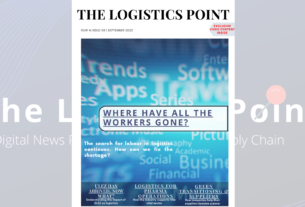The impact of uncertainty has been felt by all companies, but some suffered more than others. We only need to take a look at the previous Christmas Season to see the winners and losers. We spoke to Tobi Buxhoidt, Founder and CEO at parcelLab, about how consumers have changed their habits and what it means for the wider delivery sector. More from our Feb edition now!
‘The energy crisis in 2023 had a significant impact on the way consumers spend. A lot of the spend on non-essential goods went down,’ begins Tobi. Consumers have chosen to prioritise essentials and this led to many brands experiencing slower or negative growth. Tobi takes a look at the luxury goods markets.
At the start of 2023 it looked like the sector was immune to the volatility that plagued the others in retail. Recently, however, many luxury brands have had to rethink the way they operate with some even having real problems staying afloat.
For many retail brands Peak Season was good enough to get them through the year and the overall mood has improved. With some of the supply chain disruptions gone, companies also have a brighter view.
However, things keep changing and new challenges are being added and pop up elsewhere all the time. ‘We have seen positive signs, where retailers are ready to once again invest and do new things,’ Tobi explains.
Addressing disruptions head-on
A universal rule has emerged where supply chain experts know that disruptions will never end. For Tobi the big question is how companies respond to delays. ‘Would you be selling the stock you are still waiting for on your website or not?,’ he asks. Whatever the answer for Tobi the key thing is to address consumers’ expectations. Retailers have started to now take full responsibility and implement transparency with their customers. ‘Make sure you do not fall short on promises and address changes head-on,’ Tobi suggests.
Honesty would be rewarded. Communicating well with the consumer on their shipment will improve brand loyalty.
‘You might have to send messages explaining the situation and your continued promise to deliver,’ Tobi goes on. Of course, the strategy might not work that well with products that can be substituted by other retailers, so a dual strategy would need to be devised.
‘During Covid we worked with IKEA Italy on that premise,’ Tobi says. ‘We took the orders and we openly communicated with the clients the reasons why there will be a delay.’
The conversation then moves on to what tools to use for the communication. Tobi believes that AI might be overhyped at the moment but certainly has the power to deliver better customer service in the long run. ✷



